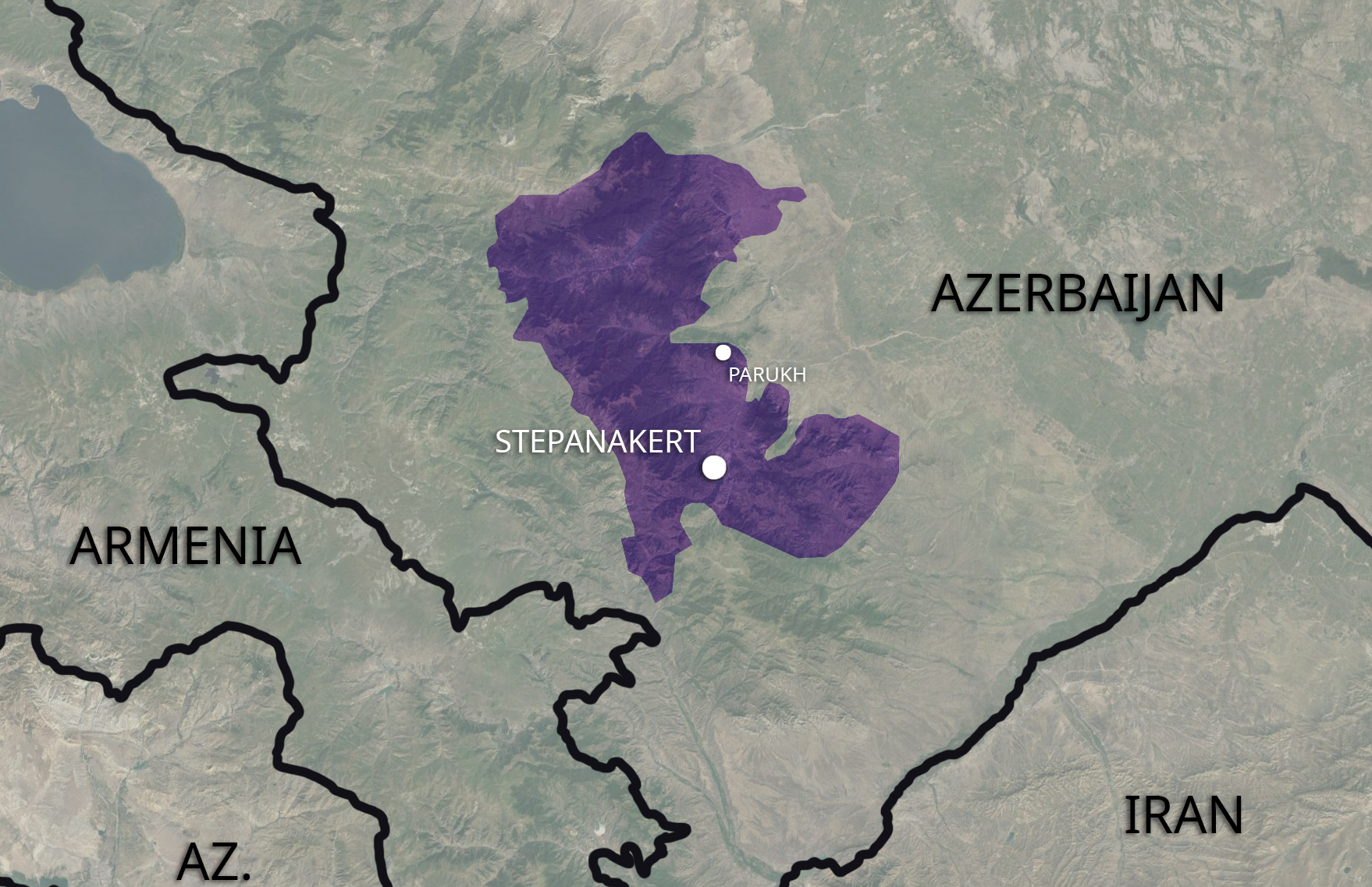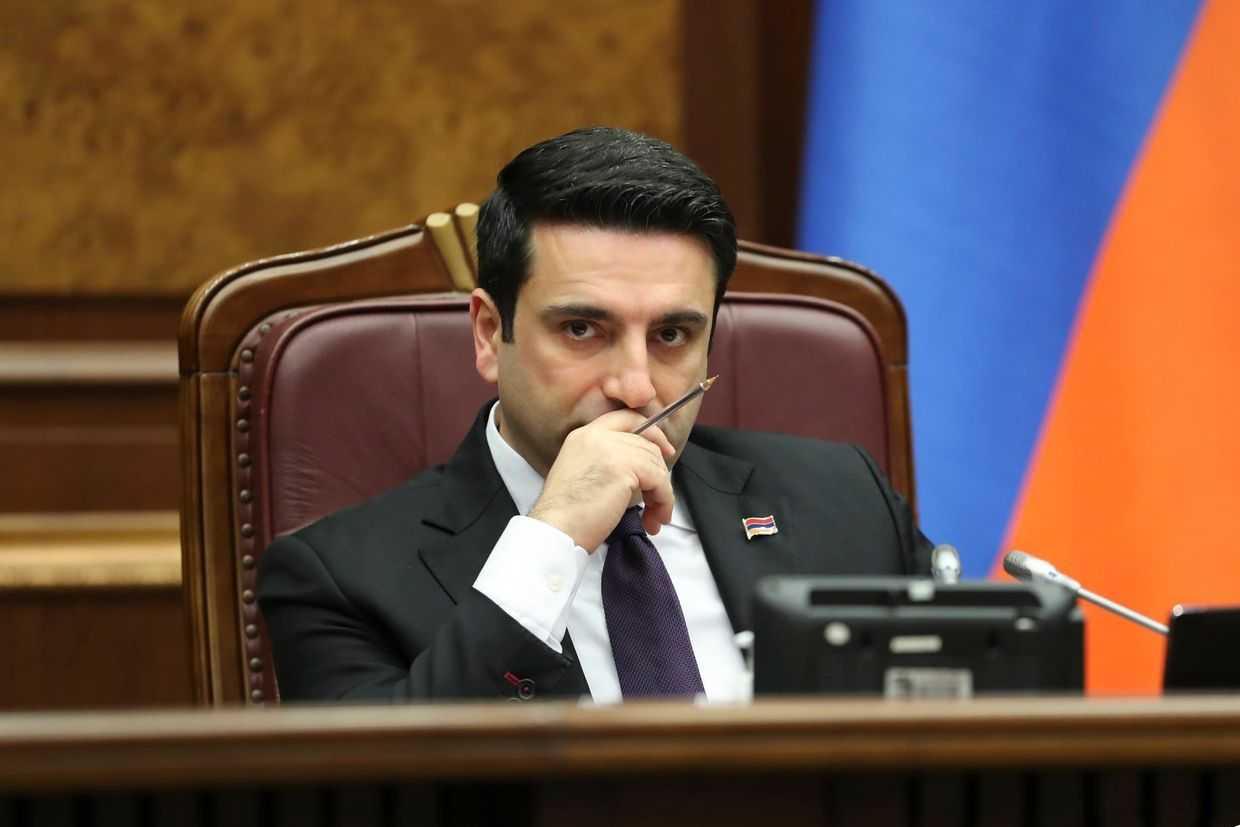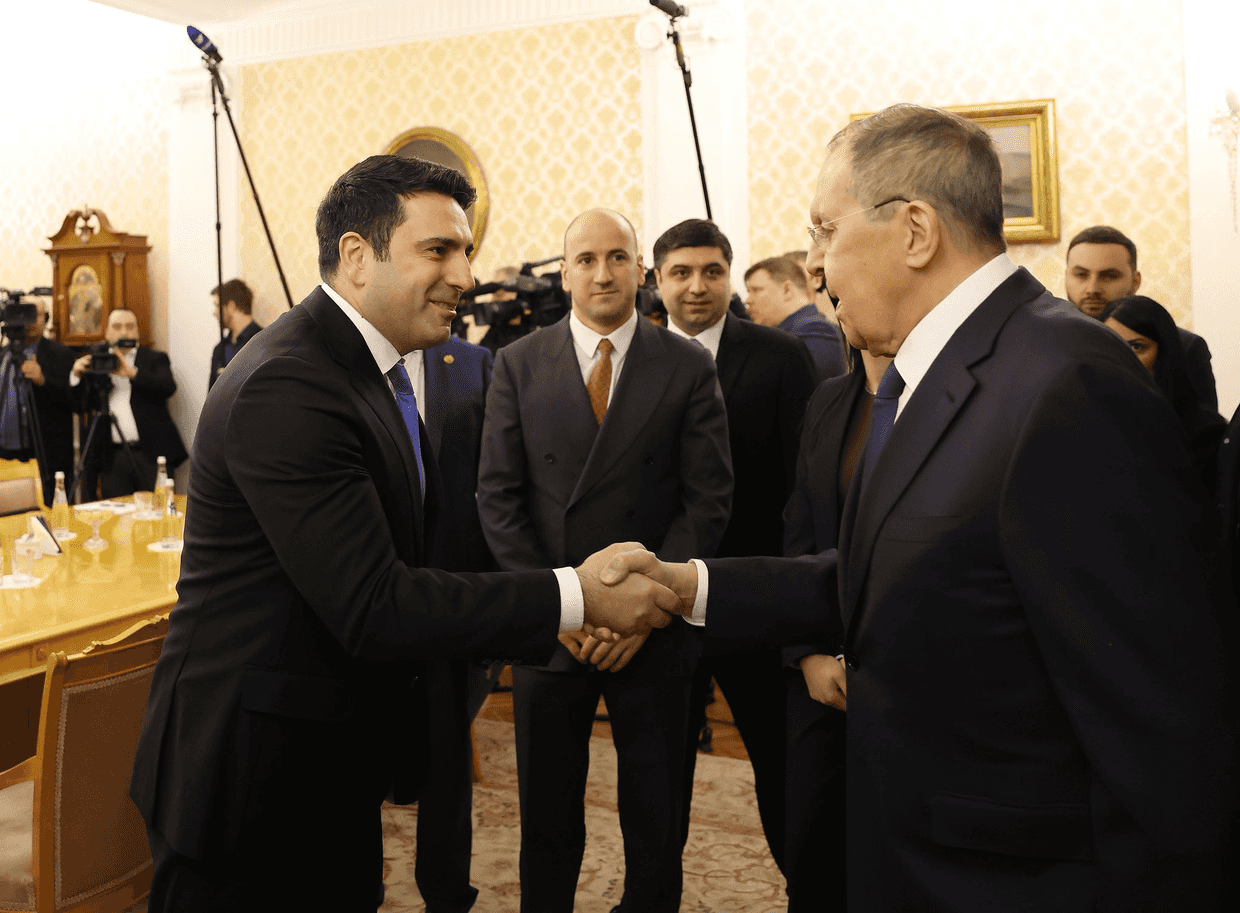
An Armenian-inhabited village in Nagorno-Karabakh has reportedly been taken over by Azerbaijani troops. Authorities in Stepanakert report that two Armenian soldiers were killed and that Azerbaijani drones were deployed in nearby clashes.
Azerbaijani troops reportedly crossed the line of contact separating Armenian and Azerbaijani forces on the evening of 24 March and took control of the village of Parukh (Farukh). Local residents have been evacuated.
According to Tigran Grigoryan, an independent journalist from Nagorno-Karabakh, after recent tensions near Parukh, Russian peacekeepers negotiated an agreement according to which both sides would withdraw troops from Parukh and would be replaced by a contingent of Russian peacekeepers.
Upon the withdrawal of Armenian troops, Grigoryan said that Azerbaijani forces ‘captured the village without any actual resistance from the Russian side’.
OC Media has not been able to independently verify the account.

Additionally, the Nagorno-Karabakh Defence Army has reported clashes between Armenian and Azerbaijani forces near the village in the early hours of 25 March. Officials in Stepanakert have accused Azerbaijan of using armed drones during the fighting.
As of publication, five Armenian soldiers were reportedly wounded, and two killed. The Azerbaijani Ministry of Defence has not released any information about possible injuries or fatalities among Azerbaijani military personnel.
The Armenian Foreign Ministry denounced Azerbaijan’s reported incursion as a violation of the tripartite peace declaration that brought an end to the Second Nagorno-Karabakh War.
Azerbaijan’s actions, they wrote, in combination with recent shelling of villages in Nagorno-Karabakh, and the disruption of gas supplies to the Armenian population in the region, amounted to an attempt at ‘ethnic cleansing’ that ‘seriously endanger regional stability and peace’.
[Read more: In deep freeze, Nagorno-Karabakh finds itself without gas again]
In turn, the Azerbaijani Foreign Ministry released its own statement, in which they referred to events on the line of contact as a ‘clarification’ of the ‘positions and locations in the region’.
‘There is no reason for any hysteria’, the statement reads, further accusing Armenia of engaging in ‘disinformation’ by ‘artificially exaggerating the issue’. The ongoing disruption of gas supplies to Nagorno-Karabakh, they wrote, were a result of ‘technical problems’ due to ‘severe weather conditions’.
Some in Azerbaijan have also explicitly called for escalation. Elman Mammadov, an MP from the ruling New Azerbaijan Party called for ‘the separatists and terrorists living [in Nagorno-Karabakh], and the [Nagorno-Karabakh] military’ to be ‘cleansed’.
‘The Armenians living in those areas before 1988 and their descendants must adopt the laws of Azerbaijan. Otherwise, Armenians who are not our citizens cannot live in our territories’, he said.
As of yet, Russia’s peacekeeping mission have also not released a statement.
[Read more: Violence sparks fear of new war among Nagorno-Karabakh residents]
There was a swift, if characteristically diplomatic, comment from the US State Department on recent events, who published a tweet expressing concern about ‘gas disruptions and Azerbaijan’s troop movements’ and calling for an immediate de-escalation.
The U.S. is deeply concerned about gas disruptions and Azerbaijan’s troop movements. Armenia and Azerbaijan need to use direct communications channels to immediately deescalate
— DoS Europe and Eurasia (@StateEUR) March 24, 2022
Armenia’s Defence Minister Suren Papikyan also announced that he spoke with Russian Defence Minister Sergei Shoygu, who ‘assured’ him that Russia was following the ‘situation’.
For ease of reading, we choose not to use qualifiers such as ‘de facto’, ‘unrecognised’, or ‘partially recognised’ when discussing institutions or political positions within Abkhazia, Nagorno-Karabakh, and South Ossetia. This does not imply a position on their status.








